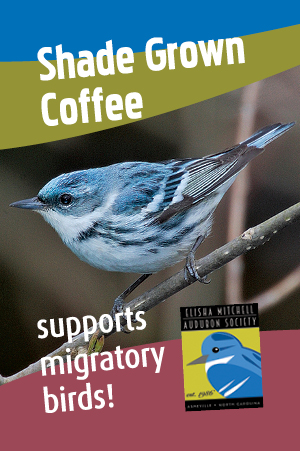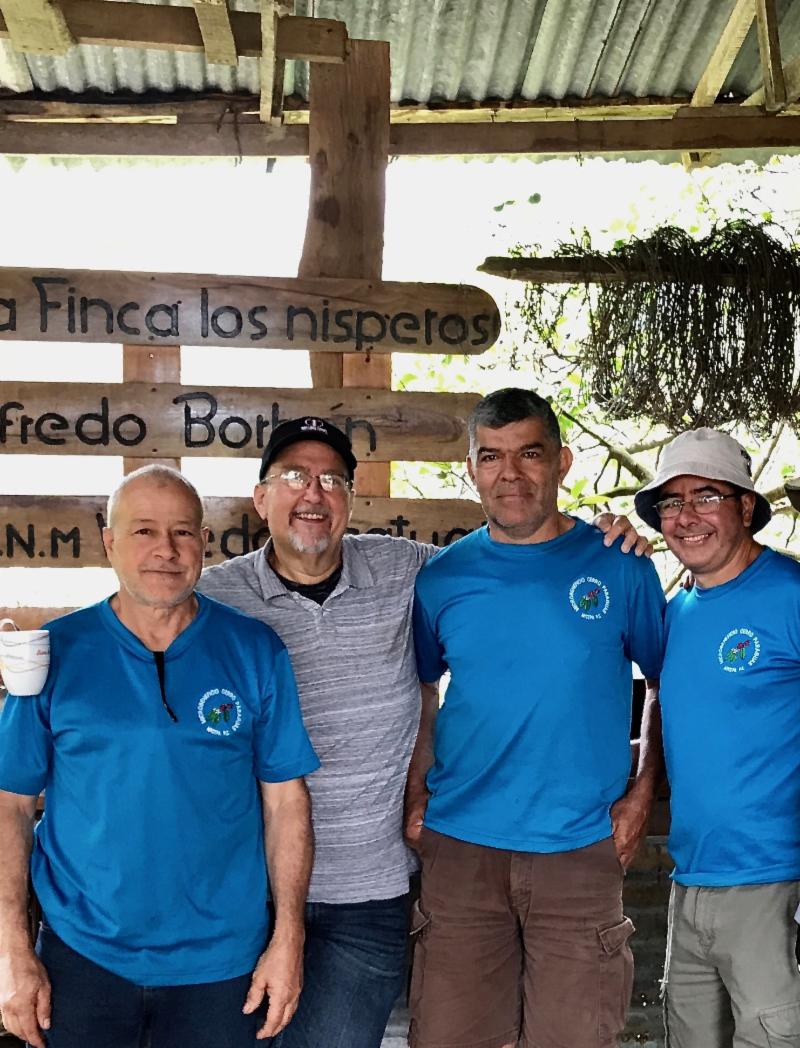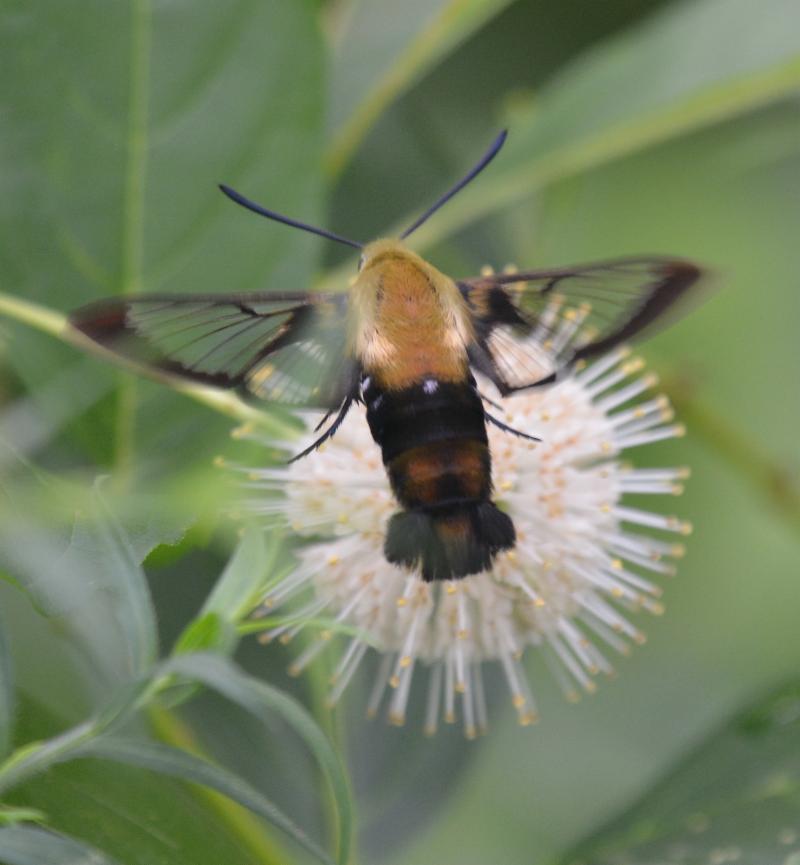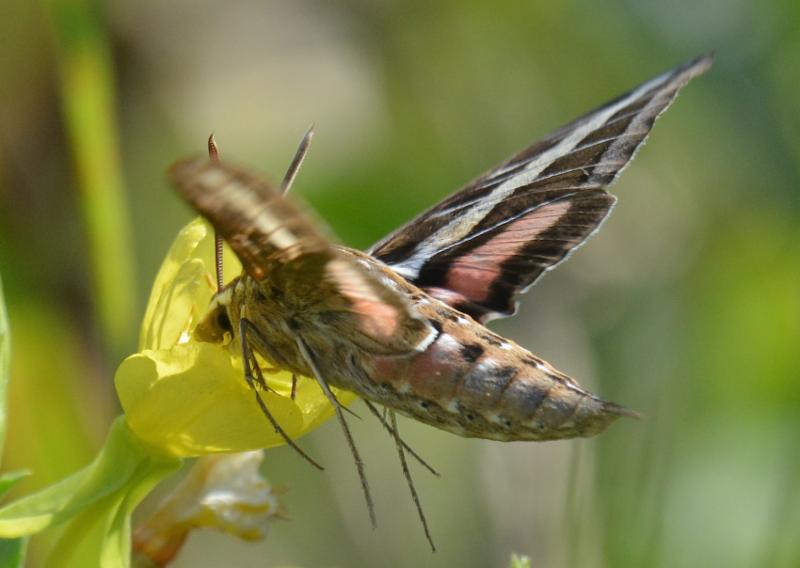|
Sat, Aug 11, 8am
Jackson Park Birdwalk
Sat, Aug 18, 8am
Swannanoa Valley Birdwalk
Tues, Aug 21, 7pm
EMAS Program
Reuter Center, UNCAsheville
Sat, Sept 1, 8am
Beaver Lake Birdwalk
Sat, Sept 8, 8am
Jackson Park Birdwalk
Sat, Sept 15, 8am
Swannanoa Valley Birdwalk.
|
Sierra Club Program
On September 6, Ken Brame, NC Sierra Club Political Chair, will talk about why we need to elect good environmental state legislators and what each of us can do to elect an environmental majority to the NC State House and the Buncombe County Commission. 7:00 p.m., U. U. Congregation, 1 Edwin Place, Asheville, NC
|
For the latest schedule and any changes:
|
|
|
Our sincere thanks
 |
|
 |
Golden-winged Warbler by Alan Lenk |
go out to all those who donated to Elisha Mitchell Audubon's 2018 Birdathon. Through your generosity, and the fundraising efforts of the Birdathon teams, you've helped us raise $7,200! Thank you so much, we appreciate your support.
The funds from the Birdathon have been disbursed as follows. A UNCA Environmental Studies student has been awarded a $1,000 scholarship. The remaining funds will go to the
American Bird Conservancy to support a project in the Nicaraguan highlands aimed at increasing highland forest connectivity and creating shade-grown coffee systems for the benefit of Golden-winged Warblers, Wood Thrush, and other neotropical migrants and native birds. ABC will match funds raised from our birdathon for a total of $12,400!
Since the 2010 Birdathon, our chapter has raised over $50,000 for bird conservation. We are most grateful for the support of our members. If you haven't yet sent in your tax-deductible contribution yet, please
click here for a donation form. It's never too late for you to help birds!
Thank you all very much again for your generous and important support.
|

As part of our Shade Grown Coffee Initiative, EMAS will present a special August program with Ken Lander, who has been a coffee farmer for 13 years in Costa Rica. Our Shade Grown Coffee initiative encourages folks to choose Shade Grown when they drink coffee. Shade grown coffee plantations provide important habitat for native birds and for the many neo-tropical songbirds that nest in North America and winter in the tropics. Coffee plantations with native trees and shrubs have four times more bird diversity than open "sun" plantations. For people who love birds and coffee, choosing shade grown is one of the most important things you can do to support neotropical migratory birds.
 Ken Lander is a co-founder and Chief Sustainability Officer of Thrive Farmers in Costa Rica, a company whose vision is to empower farmers and thereby strengthen their communities. Ken practiced law for 14 years in Georgia before deciding to move with his family to a coffee farm in Costa Rica. In the transition from trial lawyer to coffee farmer, Ken quickly began to understand the injustices that farmers face in the current value chain of coffee. Ken will share with us the realities of coffee growing and talk about shade grown coffee farming in Costa Rica. He'll also discuss his efforts, through Thrive Farmers, to make a direct connection between the coffee farmer and the lover of coffee. Ken Lander is a co-founder and Chief Sustainability Officer of Thrive Farmers in Costa Rica, a company whose vision is to empower farmers and thereby strengthen their communities. Ken practiced law for 14 years in Georgia before deciding to move with his family to a coffee farm in Costa Rica. In the transition from trial lawyer to coffee farmer, Ken quickly began to understand the injustices that farmers face in the current value chain of coffee. Ken will share with us the realities of coffee growing and talk about shade grown coffee farming in Costa Rica. He'll also discuss his efforts, through Thrive Farmers, to make a direct connection between the coffee farmer and the lover of coffee.
EMAS programs are free and open to the public.
|
A Ruby-throated
 |
|
 |
Ruby-throated Hummingbird by Alan Lenk |
Hummingbird rests in a Yaupon Holly bush on East-Ship Island of the Gulf Islands National Seashore. The sun set just a few hours ago. A gentle north wind blows through the pines. Soon, with wings beating at 600 times per minute and heart pumping about the same incredible rate, the hummingbird flies over the Gulf of Mexico, headed south to the distant country of Costa Rica. Never having flown this way before, why is it making this journey? And how does it find its way over the featureless, dark water? If you would like to learn about the mysteries of bird migration, follow this link.
|
 AudubonNC Summit
AudubonNC Summit
September 7-9
|
|
|
 |
|
Blackburnian Warbler
by Alan Lenk
|
 |
This is a last reminder that the Elisha Mitchell Audubon Society is hosting
Migration in the Mountains, the Audubon NC 2018 Summit here in Asheville on the weekend of September 7-9. Participants will enjoy birding trips led by local experts, a Friday evening social event at the Wedge Foundation and a Saturday night banquet dinner at the Crowne Plaza Resort.
Early "bird" registration is open until August 15th and full-price registration ends on August 31st. EMAS members can get an extra $25 discount on the full registration by entering "EMAS" in the promotion code box. If you wish to attend only the Friday reception and Saturday banquet, the cost is $65.
We invite you to join together with birders from Asheville and all over North Carolina to celebrate birds and go birding with fellow Audubon members. Sign up now for the Audubon NC 2018 Summit! To register, go to nc.audubon.org/summit-2018
We hope to see you there!
The EMAS Board
|
|
A Delicious Dessert of Spoonbills
|
 |
|
 |
Roseate Spoonbill by Tim Carstens |
Imagine finding a Roseate Spoonbill up here in the North Carolina Mountains? It seems almost unbelievable. Well, we can do more than imagine it now- it's just happened. 2018 has been an odd year for birds here in the western mountains. Spring brought us more than the normal number of Golden Swamp Warblers (Prothonotary Warblers - in case you didn't read my last column), a spring storm dropped large numbers of shorebirds at Hooper Lane in Henderson County, by far the best shorebird spot in the Western counties. Along with large numbers of the more expected species, we had dozens of Whimbrel, Black-bellied Plover and Ruddy Turnstone plus a small flock of Red Knot - the first for the county. Also, several Cattle and Snowy Egrets have made an appearance. And now we have Roseate Spoonbills. Not just one, but 3 birds seemingly feeding happily in a Henderson County wetland - and they may have been here for a while.
Please
click here to finish Simon's article and to see more Spoonbill photos.
Simon RB Thompson
|
Text and Photos by Jay Wherley
|

Besides birds, Beaver Lake Bird Sanctuary provides opportunities to observe other types of animals. Here are two intriguing moth species that you might see during August. The Snowberry Clearwing moth appears to be a hummingbird at first sight. (Sometimes it is called a Hummingbird Moth or Flying Lobster). The Snowberry plant is one of a handful of host plants for the caterpillar.
The White-lined
 Sphinx moth also might seem like a hummingbird at first. Most commonly seen at dusk and dawn, these hovering moths are among the fastest flying insects in the world - only topped by dragonflies.
* * *
Notable recent sightings at Beaver Lake include Purple Martins and Great Crested Flycatcher.
|
|
|